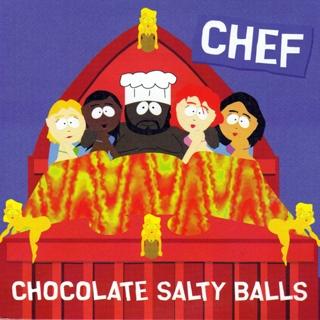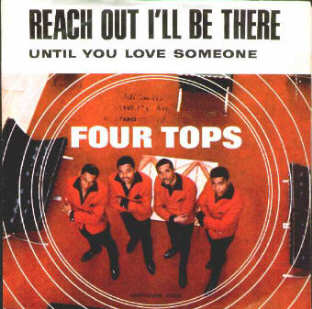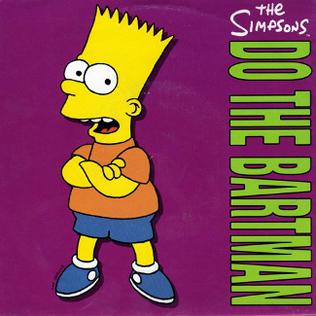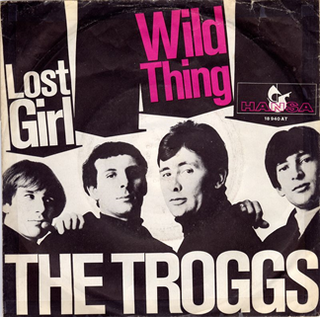
"Chocolate Salty Balls " is a song from the American animated sitcom South Park, performed by the character Chef and featured on the soundtrack album Chef Aid: The South Park Album. The song's vocals are performed by Isaac Hayes, the voice actor for Chef. The song as it originally appeared was in the 1998 episode "Chef's Chocolate Salty Balls", in which Chef creates a confectionery treat, the eponymous Chocolate Salty Balls. He then begins to sing the lyrics that became the basis for the single.

"A Well Respected Man" is a song by the British band the Kinks, written by the group's lead singer and rhythm guitarist Ray Davies, and originally released in the United Kingdom on the EP Kwyet Kinks in September 1965. It was also released as a single in the US and Continental Europe.

"Reach Out I'll Be There" (also formatted as "Reach Out (I'll Be There)") is a song recorded by American vocal quartet Four Tops from their fourth studio album, Reach Out (1967). Written and produced by Motown's main production team, Holland–Dozier–Holland, the song is one of the most widely-known Motown hits of the 1960s and is today considered the Four Tops' signature song.

"Strangers in the Night" is a song composed by Bert Kaempfert with English lyrics by Charles Singleton and Eddie Snyder. Kaempfert originally used it under the title "Beddy Bye" as part of the instrumental score for the movie A Man Could Get Killed. The song was made famous in 1966 by Frank Sinatra.
"Rivers of Babylon" is a Rastafari song written and recorded by Brent Dowe and Trevor McNaughton of the Jamaican reggae group The Melodians in 1970. The lyrics are adapted from the texts of Psalms 19 and 137 in the Hebrew Bible. The Melodians' original version of the song appeared on the soundtrack album for the 1972 movie The Harder They Come, which made it internationally known.

"Do the Bartman" is a song from the 1990 album The Simpsons Sing the Blues, featuring the voice cast of the American animated television series The Simpsons. It was performed by The Simpsons cast member Nancy Cartwright, with backing vocals from American singer Michael Jackson, alongside additional vocals from Dan Castellaneta. Jackson also produced the song, which was written by American recording artist Bryan Loren, and Geffen Records released it as a single on November 20, 1990.

"I've Got You Under My Skin" is a song written by American composer Cole Porter in 1936. It was introduced that year in the Eleanor Powell musical film Born to Dance in which it was performed by Virginia Bruce. It was nominated for the Academy Award for Best Original Song that year but lost out to "The Way You Look Tonight". Popular recordings in 1936 were by Ray Noble and his Orchestra and by Hal Kemp and his Orchestra.

"I Got You Babe" is a song performed by American pop and entertainment duo Sonny & Cher and written by Sonny Bono. It was the first single taken from their debut studio album, Look at Us (1965). In August 1965, the single spent three weeks at number one on the Billboard Hot 100 in the United States where it sold more than one million copies and was certified Gold. It also reached number one in the United Kingdom and Canada.

"Witch Doctor" is a 1958 American novelty song written and performed by Ross Bagdasarian, under his stage name David Seville. It became a number one hit and rescued Liberty Records from near-bankruptcy.

"I've Been Loving You Too Long" (originally "I've Been Loving You Too Long (To Stop Now)") is a soul music ballad written by Otis Redding and Jerry Butler. Considered by music critics and writers to be one of Redding's finest performances and a soul classic, it is a slow, emotional piece with Redding's pleading vocals backed by producer Steve Cropper's arpeggiated guitar parts and a horn section.
"Les Trois Cloches" is a Swiss song written in French by Jean Villard. Edith Piaf recorded the song a cappella with the French vocal group Les Compagnons de la chanson in July 1946. The song became one of Édith Piaf's biggest hits, and when Piaf toured the US with Les Compagnons de la chanson, they introduced this song to an American audience. Tina Arena also recorded a hit version in 2000.

"(I've Had) The Time of My Life" is a 1987 song composed by Franke Previte, John DeNicola, and Donald Markowitz. It was recorded by Bill Medley and Jennifer Warnes, and used as the theme song for the 1987 film Dirty Dancing. The song has won a number of awards, including the Academy Award for Best Original Song, the Golden Globe Award for Best Original Song, and the Grammy Award for Best Pop Performance by a Duo or Group with Vocals.

"Wild Thing" is a song written by American songwriter Chip Taylor and popularized by the English rock band the Troggs. It was originally recorded and released by the American rock band the Wild Ones in 1965, but it did not chart. The Troggs' single reached number one on the Billboard Hot 100 and number two on the UK Singles Chart in 1966. Their version of "Wild Thing" was ranked at number 257 on the Rolling Stone magazine's 2004 list of the 500 Greatest Songs of All Time. It has also been performed by many other musicians.
Ultratop is an organization which generates and publishes the official record charts in Belgium. Ultratop is a non-profit organization, created in 1995 on the initiative of the Belgian Entertainment Association (BEA), the Belgian member organization of the International Federation of the Phonographic Industry. Two parallel sets of charts are concurrently produced and published, one on behalf of Belgium's mainly Dutch-speaking Flanders region, and the other catering to the nation's mainly French-speaking region of Wallonia.

"I Wanna Be a Hippy" is a song by English electronic music group Technohead. The vocals were taken from David Peel's song "I Like Marijuana", which he sung in the movie Rude Awakening. It first appeared as the B-side to the group's Mary Jane EP, issued by Dutch hardcore techno label Mokum Records. John Peel featured the track "Mary Jane" on his show on 10 February 1995, which helped give the release recognition.

"With a Girl Like You" is a song by English rock band the Troggs, released as a single in July 1966. On the back of the success of "Wild Thing", "With a Girl Like You" topped the charts in the UK, and was similarly a success across Europe, but did not fare as well in the US, only peaking at number 29 on the Billboard Hot 100.
"The House of the Rising Sun" is a traditional folk song, sometimes called "Rising Sun Blues". It tells of a person's life gone wrong in the city of New Orleans. Many versions also urge a sibling or parents and children to avoid the same fate. The most successful commercial version, recorded in 1964 by the British rock band The Animals, was a number one hit on the UK Singles Chart and in the US and Canada. As a traditional folk song recorded by an electric rock band, it has been described as the "first folk rock hit".

"Heaven Must Have Sent You" is a song written by Brian Holland, Lamont Dozier, and Eddie Holland when at Motown, and first recorded by The Elgins in 1966. It was also a 1979 disco hit single by Bonnie Pointer.

Ferre Grignard was a Belgian skiffle-singer from Antwerp, Belgium. He had success with a number of songs, such as "Ring Ring, I've Got To Sing", "Yama, Yama, Hey", and "My Crucified Jesus".

"Ha! Ha! Said the Clown" is a song written by Tony Hazzard, first recorded by British pop group Manfred Mann. Hazzard claims the song "came out of the blue" though he did not demo it for weeks. Following recording a demo, he approached manager Gerry Bron, who liked it enough to want one of his groups, Manfred Mann, to record it. Manfred Mann recorded their version of the single on 10 February 1967 at Philips Studio in Marble Arch, London, together with producer Shel Talmy. It was the second of three singles Manfred Mann recorded to feature the Mellotron.
















